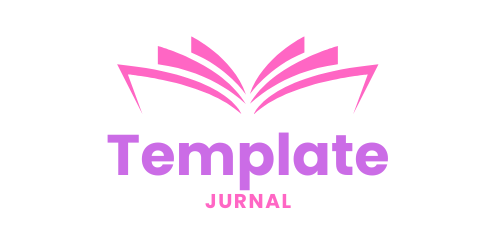PENGARUH PROMOSI KUALITAS PELAYANAN DAN KUALITAS PRODUK TERHADAP LOYALITAS NASABAH DENGAN KEPUASAN NASABAH SEBAGAI VARIABEL MODERATING PADA BANK SYARIAH INDONESIA KCP ENREKANG
DOI:
https://doi.org/10.24256/joins.v7i2.5566Abstract
The aim of this research is to analyze and find out how much influence promotion of service quality and product quality has on customer loyalty with customer satisfaction as a moderating variable at the Indonesian sharia bank KCP Enrekang. This type of research is quantitative research using a comparative approach which can be interpreted as research that compares one object with another. The sampling technique used was purposive sampling. The results of this research show that promotions do not have a positive and significant effect on customer loyalty, service quality has a positive and significant effect on customer loyalty, product quality has a positive and significant effect on customer loyalty, customer satisfaction is unable to moderate the influence of promotional variables on customer loyalty, customer satisfaction is not able to moderate the influence of service quality variables on customer loyalty, customer satisfaction is able to moderate the influence of product quality variables on customer loyalty.
References
Attas, A. (2019). PENERAPAN CUSTOMER RELATIONSHIP MANAGEMENT (CRM) TERHADAP LOYALITAS PELANGGAN (studi kasus bank BNI cabang palopo). Jurnal Manajemen STIE Muhammadiyah Palopo, 4(1), 1–4. https://doi.org/10.35906/jm001.v4i1.296
Balaka, M. Y. (2022). Metode penelitian Kuantitatif. Metodologi Penelitian Pendidikan Kualitatif, 1, 130.
Charismana, D. S., Retnawati, H., & Dhewantoro, H. N. S. (2022). Motivasi Belajar Dan Prestasi Belajar Pada Mata Pelajaran Ppkn Di Indonesia: Kajian Analisis Meta. Bhineka Tunggal Ika: Kajian Teori Dan Praktik Pendidikan PKn, 9(2), 99–113. https://doi.org/10.36706/jbti.v9i2.18333
Firmansyah, M., Masrun, M., & Yudha S, I. D. K. (2021). Esensi Perbedaan Metode Kualitatif Dan Kuantitatif. Elastisitas - Jurnal Ekonomi Pembangunan, 3(2), 156–159. https://doi.org/10.29303/e-jep.v3i2.46
Hadi, M. nafik, & Wahyudi, R. (2018). Manajemen Bank Islam (H. Rahmawan (ed.); Cetakan Pe). UAD Press.
Khaliq, R. (2019). Pengaruh Kualitas Pelayanan Terhadap Kepuasan Nasabah Bank Syariah Mandiri di Banjarmasin Kalimantan Selatan. Relevance: Journal of Management and Business, 2(1), 177–188. https://doi.org/10.22515/relevance.v2i1.1609
Marsono, A., Musthofa, M. S., & Pransiska Dewi, A. (2021). PENGARUH KUALITAS LAYANAN TERHADAP KEPUASAN KONSUMEN DITINJAU DARI PERSPEKTIF EKONOMI ISLAM (Studi Kasus di UD. Ardian Kabupaten Nganjuk). Jurnal Dinamika Ekonomi Syariah, 8(2), 114–120. https://doi.org/10.53429/jdes.v8i2.231
Mashuri, M. (2020). Analisis Dimensi Loyalitas Pelangan Berdasarkan Perspektif Islam. IQTISHADUNA: Jurnal Ilmiah Ekonomi Kita, 9(1), 54–64. https://doi.org/10.46367/iqtishaduna.v9i1.212
Meilani, A., & Sugiarti, D. (2022). Analisis Kualitas Layanan dan Kepuasan Nasabah Bank Syariah Indonesia. Jurnal Ilmiah Ekonomi Islam, 8(3), 2501. https://doi.org/10.29040/jiei.v8i3.6586
Nurfauzi, Y., Taime, H., Hanafiah, H., Yusuf, M., Asir, M., Majenang, S., Jambatan Bulan, S., Bina Bangsa, U., Bandung, S., & Makassar, I. (2023). Literature Review: Analysis Of Factors Influencing Purchasing Decisions, Product Quality And Competitive Pricing Literature Review: Analisis Faktor yang Mempengaruhi Keputusan Pembelian, Kualitas Produk dan Harga Kompetitif. Management Studies and Entrepreneurship Journal, 4(1), 183–188. http://journal.yrpipku.com/index.php/msej
Praktis Merencanakan, P., & dan Analisis dalam Penelitian Kuantitatif, M. (n.d.). Metode Penelitian Kuantitatif.
Putri, N. D. P. D., Novitasari, D., Yuwono, T., & Asbari, M. (2021). Pengaruh Kualitas Produk Dan Kualitas Pelayanan Terhadap Kepuasan Pelanggan. Journal Of Communication Education, 15(1), 1267–1283. https://doi.org/10.58217/joce-ip.v15i1.226
Rahma, T. I. F. (2019). Perbankan syariah I. Buku Diktat, 2.
Sambodo Rio Sasongko. (2021). Faktor-Faktor Kepuasan Pelanggan Dan Loyalitas Pelanggan (Literature Review Manajemen Pemasaran). Jurnal Ilmu Manajemen Terapan, 3(1), 104–114. https://doi.org/10.31933/jimt.v3i1.707
Sari, M., Rachman, H., Juli Astuti, N., Win Afgani, M., & Abdullah Siroj, R. (2022). Explanatory Survey dalam Metode Penelitian Deskriptif Kuantitatif. Jurnal Pendidikan Sains Dan Komputer, 3(01), 10–16. https://doi.org/10.47709/jpsk.v3i01.1953
Sari, R. J., & Aprianti, I. (2020). Pengaruh Kualitas Layanan dan Kepercayaan Terhadap Keputusan Loyalitas Nasabah. JEMPER (Jurnal Ekonomi Manajemen Perbankan), 2(2), 77. https://doi.org/10.32897/jemper.v2i2.377
Sihotang, H. (2023). Metode Penelitian Kuantitatif. In Pusat Penerbitan dan Pencetakan Buku Perguruan Tinggi Universitas Kristen Indonesia Jakarta. http://www.nber.org/papers/w16019
Syahputra, R. (2019). Strategi Pemasaran Dalam Alquran Tentang Promosi Penjualan. Ecobisma (Jurnal Ekonomi, Bisnis Dan Manajemen), 6(2), 83–88. https://doi.org/10.36987/ecobi.v6i2.8
Triyanti, D., Kaban, R. F., & Iqbal, M. (2021). Peran Layanan Mobile Banking Dalam Meningkatkan Kepuasan Dan Loyalitas Nasabah Bank Syariah. Jurnal Muhammadiyah Manajemen Bisnis, 2(1), 51. https://doi.org/10.24853/jmmb.2.1.51-62.
Vonk Noordegraaf, C., & Welles, G. W. H. (2023). Product quality. Greenhouse Climate Control: An Integrated Approach, 4(1), 92–97. https://doi.org/10.4324/9780080914947-10
Yudityawati, D. K., & Fitriyah, H. (2022). Strategi Pemasaran dalam Perspektif Islam. Jurnal Manajemen Dan Bisnis Indonesia, 8(1), 42–48. https://doi.org/10.32528/jmbi.v8i1.7429
Downloads
Published
Issue
Section
Citation Check
License
Copyright (c) 2024 HASRUL SAHARUDDIN, Nuraeni Gani, Ilham Gani

This work is licensed under a Creative Commons Attribution 4.0 International License.
Authors who wish to publish and disseminate their papers with the Journal Of Institution And Sharia Finance shall agree to the publishing rights set by Journal Of Institution And Sharia Finance Authors understand that they shall assign publication right to as part of the process upon acceptance for publication. Authors agreed that they will transfer certain copyrights to Journal Of Institution And Sharia Finance. Consecutively, authors still retain some rights to use and share their own published articles without written permission from Journal Of Institution And Sharia Finance.
Authors granted Journal Of Institution And Sharia Finance. these following rights; (1) the right to publish and provide the manuscripts in all forms and media for the purpose of publication and dissemination, (2) the authority to enforce the rights in the manuscript, for example in the case of plagiarism or in copyright infringement.
Journal Of Institution And Sharia Finance will follow COPE’s Code of Conduct and Best Practice Guidelines for Journal Editors to protect the research results and takes allegations of any infringements, plagiarisms, ethical issues, and frauds should those issues arise. The manuscript is attributed as authors' work, and are properly identified.




